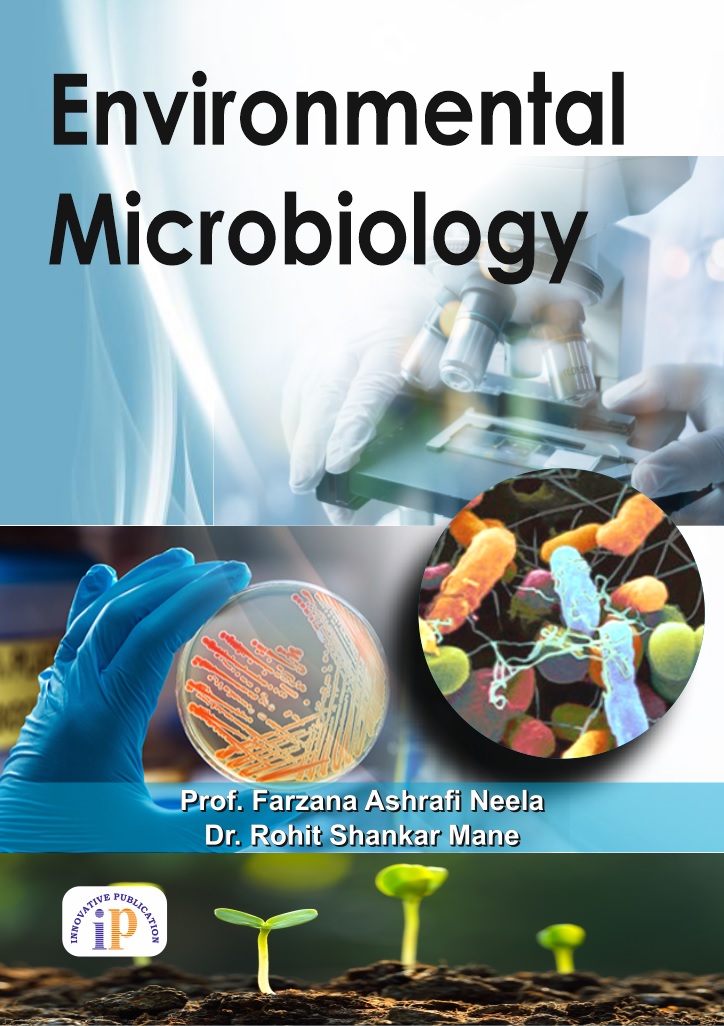Environmental Microbiology
1. Prof. Farzana Ashrafi Neela (D.Sc) Professor (Dr.) Farzana Ashrafi Neela is a Professor of Department of Botany, University of Rajshahi, Bangladesh. She completed her B.Sc. (Hons) in Botany and M.Sc. in Botany specialization in Plant Pathology, Department of Botany, Rajshahi University, Bangladesh. She received her Doctor of Science (2008) in Environmental Microbiology, Graduate School of Science and Engineering, Ehime University, Japan, entitled “Occurrence of tetracycline resistance in marine bacteria and the transfer of tet(M) gene to human enteric bacteria”. Because of her potentiality at molecular level, she received a visiting research fellowship under research project entitled “Improvement of ecosystem service functions toward the restoration of the Kasumigaura lake basin environment”, supported by the special education research expenses, the Ministry of Education, Culture, Sports, Science and Technology in Japan. She visited and worked at Eco Toxicology and Chemistry lab (ETC), Ibaraki University on March 9 to 16, 2009, July 5 to 20, 2009, and July 17 to September 12, 2010. Dr. Neela has been established Environmental Microbiology Laboratory in the Department of Botany, University of Rajshahi. Her research on antibiotic resistance contributes significantly to scientific community working in the field of Environmental Microbiology, Bangladesh. Dr. Neela has received a good number of research grants under Ministry of Education, University Grant Commission, Faculty of Life and Earth Sciences and National Science and Technology as a principal investigator. She is affiliated with the Editorial Board of Frontiers in Environmental Microbiology journal as a Member, Life member of Bangladesh Botanical Society, Member of the Japanese Society of Microbial Ecology, Life member of Bangladesh Microbiologist Society, Life member of Microbiologist Society, India, Member of the Organization of Women in Science for Developing World (OWSD) and Life member of Bangladesh Association for the Advancement of Science (BAAS). So far, she has published two books and 31 scientific papers in high rated international and national journals. She participated several national and international seminars, conferences and workshops and delivered invited and plenary lectures. 2. Dr. Rohit Shankar Mane (M.Sc. NET. DPM. PGDFSQM. Ph.D.) Dr. Rohit Shankar Mane is Microbiology Scientist at Disinfection Research and Development Centre, Bangalore, India. He has Microbiology research experience at pharmaceutical, agriculture, and medical research industry. His educational qualification is B.Sc. M.Sc. NET. DPM. PGDFSQM. Ph.D., His Ph.D. research topic was “Molecular bioprospection of bioactive compounds from endophytic fungi for disease management”. He is Principal Investigator of DST, DBT and National geography research projects. He is the inventor of Sickle cell disease kit (SickleRead) for confirmation of SCD, ROVE method to sterilize plants for the isolation of endophytes, Purified Endophytic Aspergillus nomius MN871698 from Bombax ceiba, Natural media ‘APGA’ for the growth of Fungi, and Designed citrinin formulation for MCF-7 breast cancer cell line. He is fellow of Dr. Babasaheb Ambedkar National Research Fellowship, BARTI, India. He has given International Young scientist award by AEI, India. He has given National Young Scientist award by American Microbiology Society of America. He is the 4th runner up of Citrinin against MCF-7 cell line at Dr. Raghunath Mashelkar Award, India. His project entitled “Chitinase and their antifungal effects” got nominated for GYTI-2018 award under Indian government. He has published 36 books and 56 research papers at International and National level. He is reviewer of 26 International Journals and associate editor of 12 International Journals. His interested research area is Microbiology and Agriculture. He is member of American Microbiology Society of America and Canadian Microbiology Society of Canada. He is founder of “Scientist R academy” India. He is the Editor in chief of “SCIENTIST” Journal. He is poet, activist and always engaged in microbiology awareness programs. ... Read more Read less
Welcome to the world of microorganisms and their environments. The book "Environmental Microbiology" is for students, teachers, researchers, and scientists. The purpose of this book is to introduce you to the many facts of microbial life on this planet and to show you that Earth's ecosystems and microbes are closely correlated.
Most people think of microorganisms or microbes as harmful, causing disease or just stinking up the refrigerator. However, the earth reality is that most microbes keep humans alive and healthy on Earth. Microbes indeed rule the world!
The availability of next-generation genetic sequencing technologies has revolutionized the field of environmental microbiology. The field is now focused on linking community structure with the processes occurring within the ecosystem. This book provides an in-depth overview of the role of microbes in the functioning of Earth's ecosystem. Moreover, the book is comprehendible, well organized, tightly linked and pedagogically robust. Thus, both students and instructors will benefit from this learning tool.
The book covers the syllabus of environmental microbiology in all public and private universities in India and Bangladesh.
... Read more Read less










